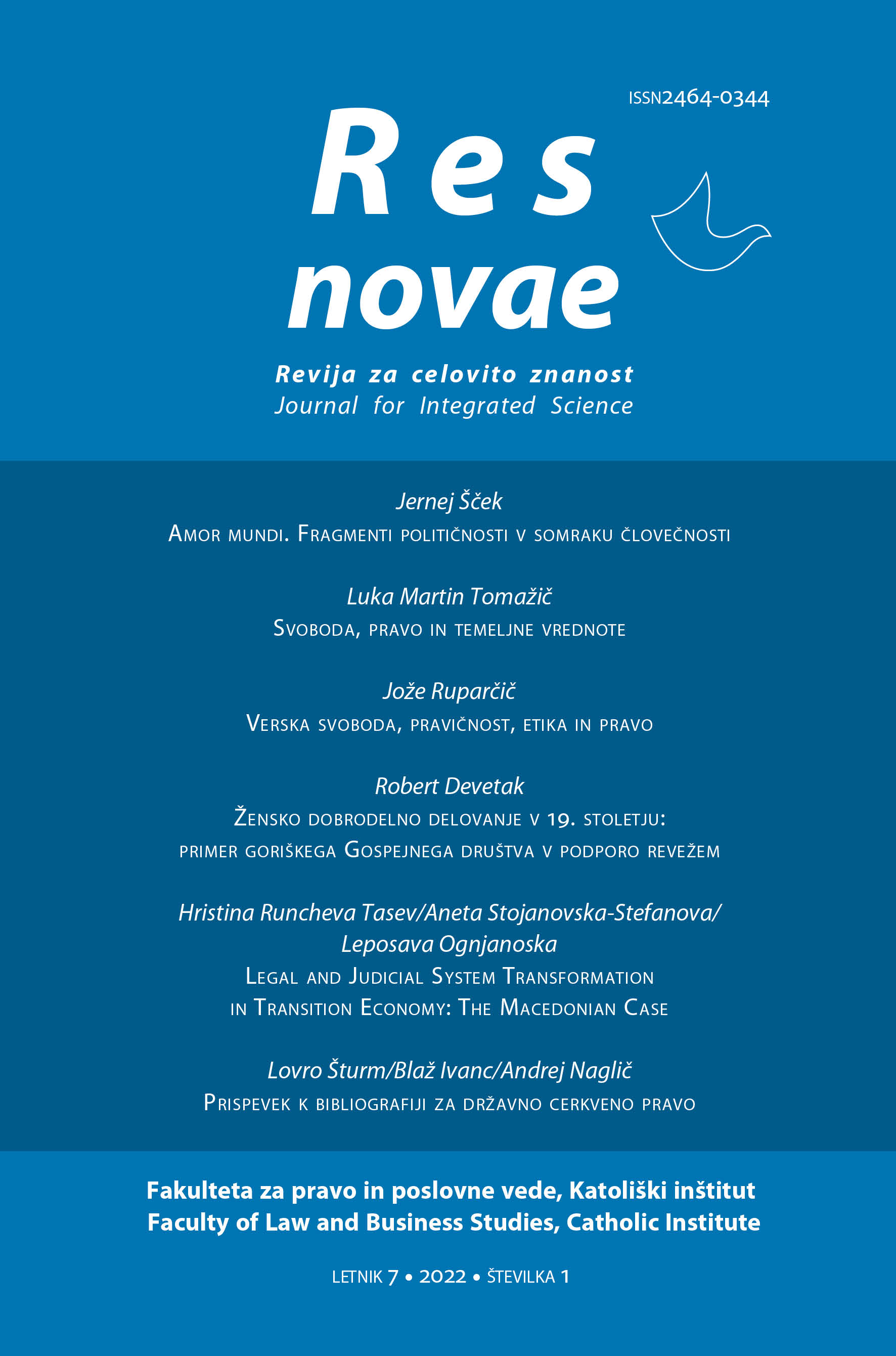Legal and Judicial System Transformation in Transition Economy: The Macedonian Case
Hristina Runcheva Tasev, Aneta Stojanovska-Stefanova, Leposava Ognjanoska
Legal and Judicial System Transformation in Transition Economy: The Macedonian Case
DOI: https://doi.org/10.62983/rn2865.22a.5
Key words: legal and judicial institutions, transition, economic development, Macedonian case study
Abstract:
Economic growth and poverty reduction are highly dependent on the well-functioning legal and judicial institutions. Experience in transition countries suggests that the legal transition and economic performance go hand in hand in advancing results. The transition from socialism to capitalism in the Republic of North Macedonia has required fundamental reforms of legal and judicial institutions. The paper analyses the experience of the country in the legal and judicial institutions transformation, a long-term process that still has active and ongoing reforms. Despite the adoption of the structural preconditions for judicial independence (legal framework, judicial councils, and academies), political intervention, corruption and influence in judicial decisions are common and legal uncertainty remains. The authors explore the effects that the legal and judicial institutions’ transformation has on Macedonian economic development by drawing data from official sources/reports. The conclusions suggest that creating a well-defined judiciary system with enforcement ability should be a priority for the executive branch of the Macedonian government to achieve improved economic performance and functional market economy.
PDF



